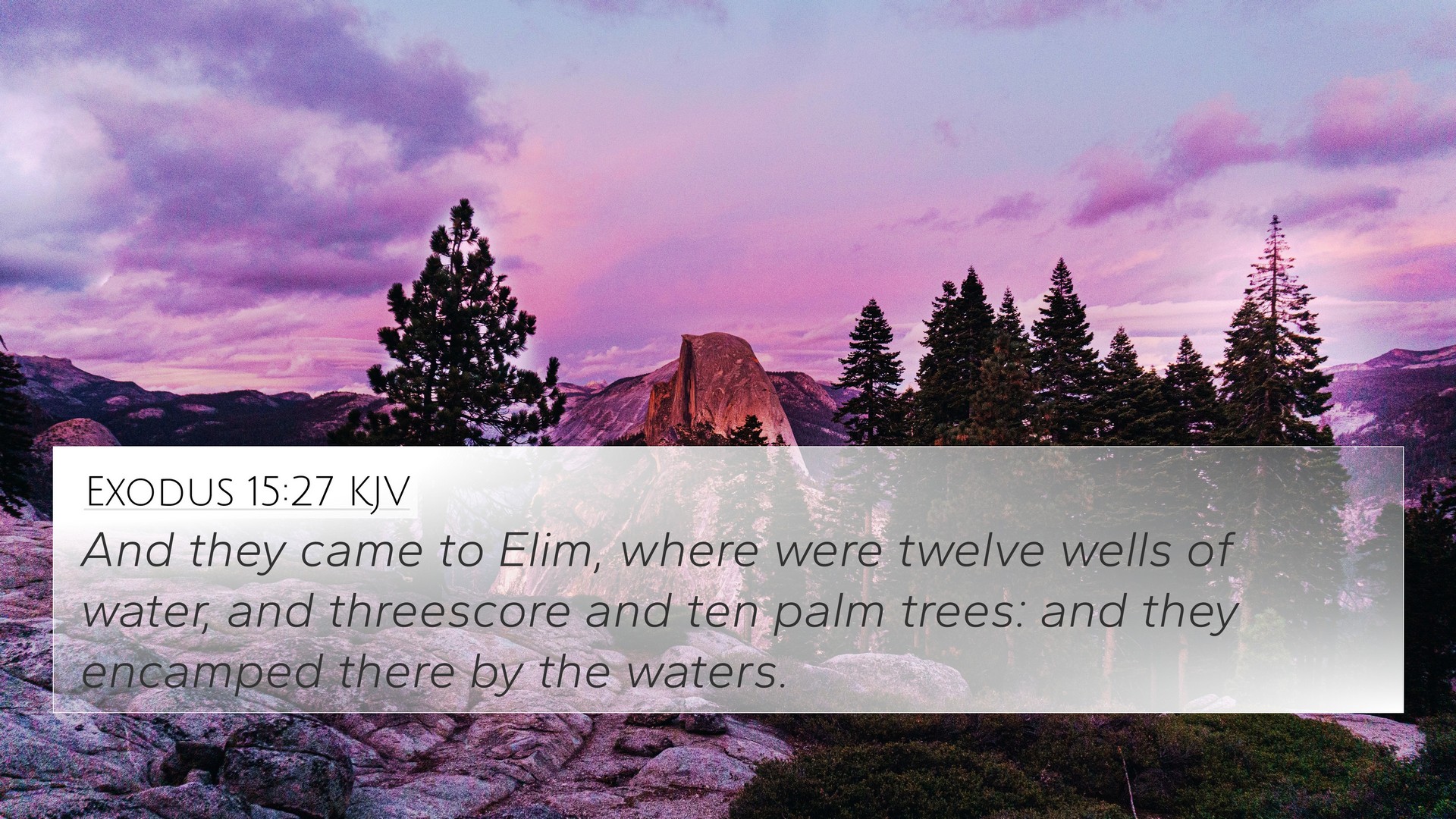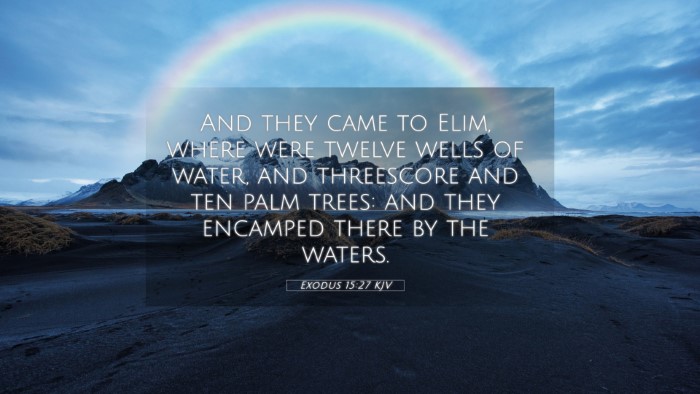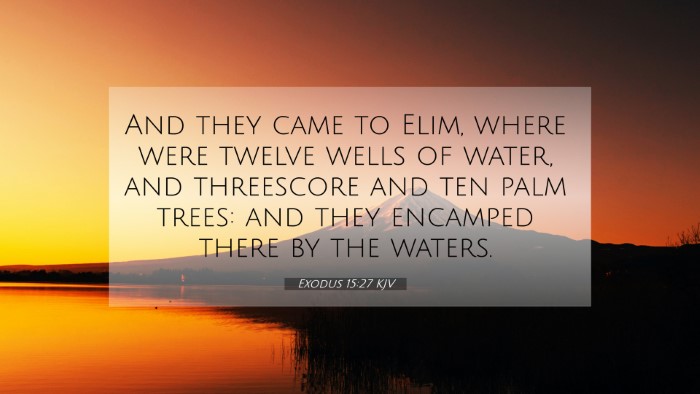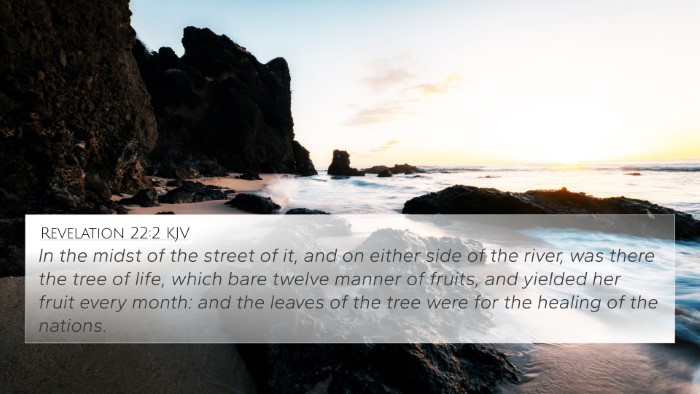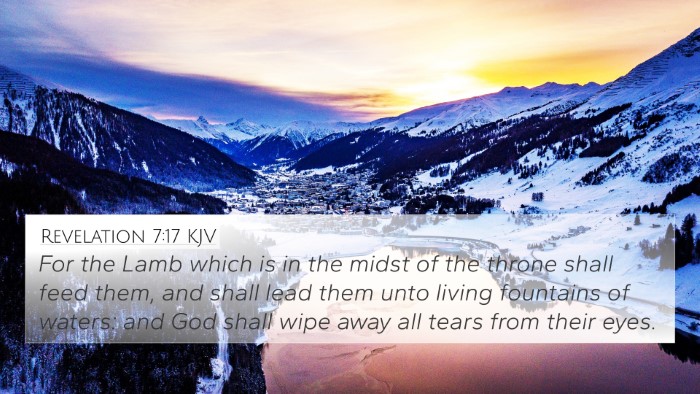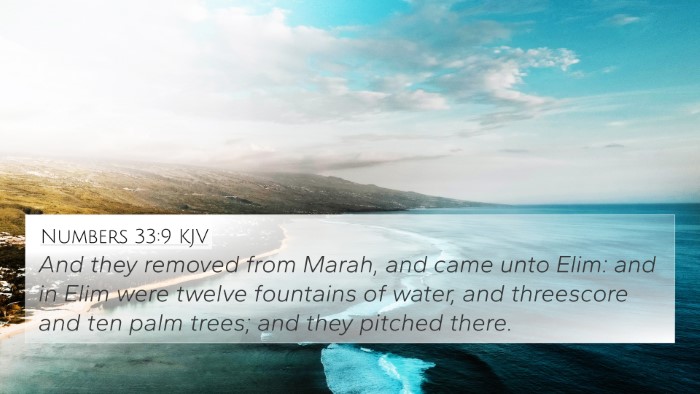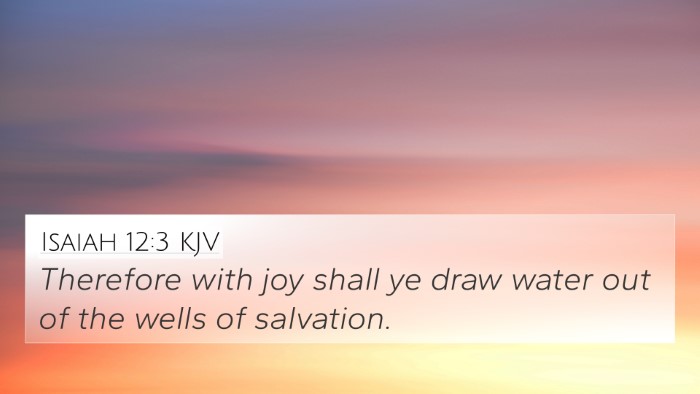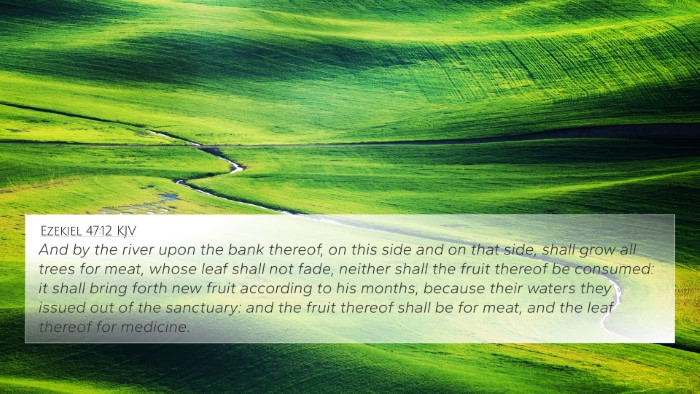Understanding Exodus 15:27
Exodus 15:27 states, "Then they came to Elim, where there were twelve springs of water and seventy palm trees, and they camped there beside the waters."
This verse serves as a narrative closure to the experiences of the Israelites following their exodus from Egypt and their miraculous crossing of the Red Sea. It introduces Elim, a place of refuge and abundance, after their journey through the wilderness.
Contextual Significance
In view of the preceding verses, where the Israelites experience both joy and trials, Elim represents a divine provision in their journey, highlighting God's faithfulness amid their struggles.
Thematic Links to Other Scriptures
Exodus 15:27 connects with various themes found throughout the Bible, illustrating God's provision and care for His people. Here are some notable connections:
- Psalm 23:1-2: "The Lord is my shepherd; I shall not want. He makes me lie down in green pastures. He leads me beside still waters." This psalm resonates with the imagery of respite and abundance seen in Elim.
- John 4:14: "But whoever drinks the water I give them will never thirst." This verse reflects the spiritual sustenance referenced in Exodus 15:27.
- Deuteronomy 8:7-9: "For the Lord your God is bringing you into a good land, a land of brooks of water..." This passage echoes the blessings of water and palm trees which symbolize prosperity.
- Revelation 7:17: "For the Lamb in the midst of the throne will be their shepherd, and He will guide them to springs of living water." This verse demonstrates the ultimate fulfillment of God's promise of life-giving water.
- Isaiah 41:18: "I will open rivers in desolate heights, and fountains in the midst of the valleys." Here, God’s promise of provision aligns with the experience of the Israelites at Elim.
- Matthew 6:31-33: "Do not be anxious, saying, 'What shall we eat?' or 'What shall we drink?' ... But seek first the kingdom of God..." This reinforces the notion of trusting God's provision as demonstrated in Elim.
- Jeremiah 2:13: "For My people have committed two sins: they have forsaken Me, the spring of living water..." This verse speaks to the symbolism of water as essential for life, a key aspect of Elim’s significance.
Exegesis and Application
From an exegetical perspective, Exodus 15:27 encourages believers to find solace and nourishment in God during their spiritual and physical journeys. It emphasizes the transition from despair to hope, showcasing not only God's providence but also a pattern for believers to rely on His provision.
Historical and Cultural Context
Elim, with its twelve springs and seventy palm trees, symbolizes abundance and rest, which are essential for a weary people. Historically, the twelve springs may represent the twelve tribes of Israel, and the seventy palm trees could be indicative of the seventy elders of Israel, suggesting God’s covenantal relationship with His people, emphasizing community and support.
Conclusion
Exodus 15:27 not only provides a literal location of rest for the Israelites but serves as a broader theological symbol of God’s provision and care throughout the Bible. Understanding this verse in light of its greater biblical context allows for deeper insights into God’s character and promises.
Further Studies and Cross-References
For those interested in deeper studies, tools for cross-referencing, such as a Bible Concordance or Bible Cross-Reference Guide, can enhance the understanding of connections between this verse and others within the narrative and thematic ties throughout scripture.
Using these references as a part of cross-referencing Bible studies can illuminate the richness of God's word and provide foundational insights that are applicable to daily living.
